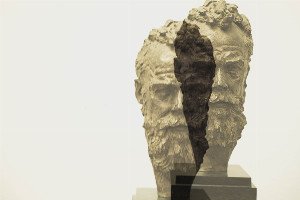Muhammad Bachrul Alam, Hafid Umar Haidar, Muhammad Shafei, Muhammad Irfanul Abidin, Akbar Sauqi Malik
Mainstreaming the Position of Media for Good Governance in Combating Corruption in Indonesia
Introduction
Mainstreaming the position of media for good governance in combating corruption in indonesia. Discover how media champions good governance and combats corruption in Indonesia. This study analyzes its vital role in prevention, law enforcement, and transparency.
Abstract
Media is one of the important pillars in democracy. In many conditions, the media is also considered to have an important role in encouraging the creation of good governance, one of which is encouraging massive efforts to prevent corruption and enforce the law. Various cases prove that with various media discourses and types of news in the community, it helps encourage various disclosures of corruption cases and encourages cleaner, transparent, and better governance. This study aims to analyze the prevention of corruption through good governance through media encouragement. This study also aims to describe and analyze the role of the media in encouraging various efforts to prevent corruption. The method in this study is a normative legal study where the research only examines various theories and legal norms as well as social theories in corruption and governance.
Review
The submitted abstract outlines a timely and highly relevant study examining the pivotal role of media in fostering good governance and combating corruption in Indonesia. The authors clearly articulate their intention to analyze how media encouragement contributes to corruption prevention efforts and to describe the specific functions of media in this regard. Importantly, the study frames itself as a normative legal study, indicating an approach focused on examining theories, legal norms, and relevant social theories pertaining to corruption and governance. The core premise that media serves as a crucial democratic pillar and an agent for transparent and accountable governance is well-founded and offers a compelling lens through which to explore anti-corruption strategies. The abstract's assertion that "various cases prove" media's impact is strong, and while the methodology is normative, the paper would benefit from a clear explanation of how these empirical observations will be integrated and discussed within a theoretical and legal framework, rather than through empirical data collection. Furthermore, the abstract mentions examining "social theories" alongside "legal norms." It would be valuable for the full paper to meticulously detail how these different theoretical strands will be interwoven to provide a comprehensive analysis within a strictly normative legal context, particularly in understanding the *mechanisms* of media influence. Greater specificity on the types of media and their operational encouragement for corruption prevention would also enhance clarity. Overall, this study has the potential to make a significant contribution to the discourse on anti-corruption efforts and media's role in democratic societies, especially within the Indonesian context. To maximize its impact, the authors should ensure a robust and well-defined methodology that explicitly clarifies the interaction between legal doctrines, social theories, and the observations cited in the abstract. A precise articulation of how media discourse translates into legal or governance reform within a normative framework would strengthen the analysis. If these points are thoroughly addressed, the paper promises to offer valuable insights into mainstreaming media's position for good governance in the critical fight against corruption.
Full Text
You need to be logged in to view the full text and Download file of this article - Mainstreaming the Position of Media for Good Governance in Combating Corruption in Indonesia from Indonesia Media Law Review .
Login to View Full Text And DownloadComments
You need to be logged in to post a comment.
Top Blogs by Rating
The Spiritual Shelf Life: Navi...
By Sciaria
Are You Just a Colony? The Int...
By Sciaria
The Unspoken Wisdom: Embracing...
By Sciaria
Favorite Blog
Andragogy: The Secret to Engag...
By Sciaria
Beyond Impatience: A Philosoph...
By Sciaria
Unlocking Life's Source Code:...
By Sciaria





